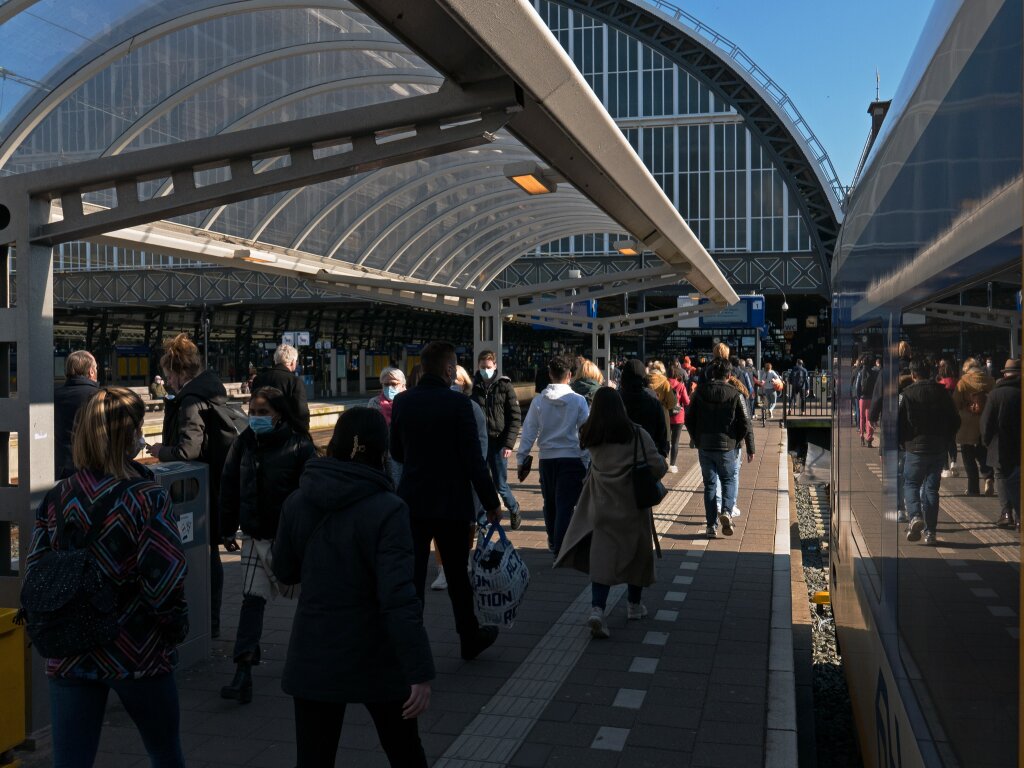By Matt Farquharson | 5 min
(Photocredit - Getty Images)
"Our employers are oafs: unimaginative, overly cautious and unwilling to think beyond the 9-5". Matt Farquharson from Motherpukka tells it like it is on flexible working
Their addiction to this idiocy blights almost everyone who works, but it blights parents more than most. Nearly nine million UK workers say they want to work flexibly but don’t have the option.
And that's despite the fact that since 2014, every employee in the UK with more than six months in their job has had the right to request flexible working. The trouble is that most who make the request are treated like toddlers demanding marzipan at bedtime.
And the core of the oafishness is this: in most cases, flexible working means happier staff, lower costs and greater productivity. It’s good for people and it’s good for business (see slightly ranty stats below).
Of course, there are some jobs where flexibility is harder to manage. No one wants all their town-centre coppers taking Friday nights off; call centres need heads attached to headsets at the hours people are most likely to call.
But in most roles that involve sitting at a desk (and that’s a good 80% of them in the UK), it makes no odds whether you write your report at 6am, lunchtime, or midnight.
And even in those desk jobs that demand rapid responses, it rarely makes any difference whether you send that response from your sofa, or perched in front of your assigned piece of laminated MDF.
But it can make a lot of difference to you. In the UK, average commuting times are 46 minutes a day, which is higher than anywhere else in the OECD. In London, it’s 56 minutes.
###pwork longer hours than the French, the Germans, the Scandinavians and the Dutch, but are less productive than all of them.
Flexible working doesn’t mean working less or slacking off, it means finding hours that suit your life and how you best work. If that happens to be sitting below strip lighting, so be it. But if you’re most productive working from bed/a park/the local library, employers should have the imagination to allow that to happen.
And it’s not just an issue for parents, either. It applies just as much to first-jobbers who nurse hangovers every Monday morning as it does dads who like to do the school run.
I have been freelance, or semi-freelance, for most of my working life, but it’s only as a parent that I’ve realised how important some flexibility is, and how hard it is for two parents to work full-time in office jobs. It’s rare to find a daycare that opens beyond 8am to 6pm. Combine those hours and the average UK commute and it might mean working from 08.30 to 5.30 every day: about the average UK, lunch-at-your-desk working day.
But if just one of you has a longer commute, the whole thing is scuppered.
By school age, collecting kids becomes impossible with out paid help or very understanding grandparents.
But this isn’t just a parental rant: it’s good economic sense. When parents drop out of work, the economy loses their knowledge and their tax revenue. And it’s one of the few issues that both the unionists of the TUC and the employers at the CBI agree on: flexible working is better for staff, and it’s better for profits.
The only people resisting are those who actually stand to benefit: employers themselves.
That resistance is, I think, driven by fear that people will slack off. Some will. If they do, give them a warning. If they continue to, then pull them back to their desk or give them the boot. But at least give them the option.
If employers are willing to offer it, my guess is that (with most parents at least) they can only win.
The business case for flexible working
Save rent
For most businesses, the two main costs are people and property. Flexible working lets employers lower the latter. Lambeth Council claims it will save £4.5 million per year in property running costs by making sure that no more than 60% of its staff are in at one time.
Attract talent
Some 30% of the UK’s working population (8.7 million people) wants flexible working but doesn’t have it, yet only 6% of advertised jobs with a salary above £20,000 actually offer it.
Retain talent
It costs more than £5,000 to hire a new employee in the UK. When you add costs associated with getting the newbie up to speed that cost exceeds £30,000, arbitration service Acas recently reported, and more than £35,000, according to analysts CEBR. In it’s 2012 study, HR institute the CIPD found that 76% of employers saw staff retention improve when they offered flexible working.
Improve productivity.
This argument has become as undeniable as the case for climate change: 81% of senior managers believe flexible working improves productivity. Three in five people who work flexibly put in more hours as a result of being allowed to do so. Another report found that 72% of businesses reported increased productivity as a direct result of flexible working.
Our thanks to Motherpukka for this piece, which originally appeared on their own site. You can follow @mother_pukka on twitter, or Matt on Instagram @papa_pukka.
What constitutes “good work” and the future of employment are major themes at the forthcoming Unions 21 conference, which takes place in London on 21 March. Full details and registration here.



